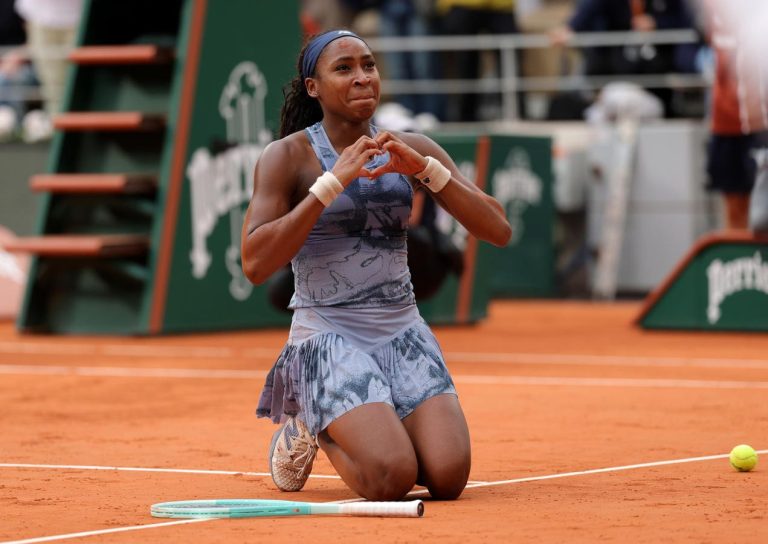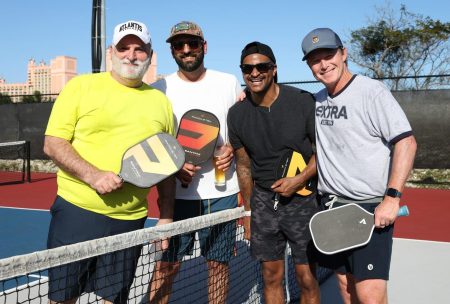Earlier this year, my husband and I attended the BNP Paribus Open tennis tournament in Indian Wells, California. Top players attend and spectators can watch the players practice and compete. I like to learn more about the players, and research both them and their coaches.
Through this research I discovered several players had split with their coaches. If the players determine they’re not performing the way they want, they seek a new coach for tips, tricks, and advice. There is a reason why professional athletes have a coach: to have someone to advise and guide them and help them overcome obstacles along the way.
When tennis professional Coco Gauff won the U.S. Open in 2023, Brad Gilbert was her coach. She parted ways with Gilbert during this past year saying she wanted “refresh” and hoped a change would improve her game. The change proved results. In the recent Roland-Garros or French Open, Coco Gauff became the first American woman to win the French Open singles title since Serena Williams in 2015.
Watching tennis and reading about the changes in coaches, made me think about the coaching profession in general. Regardless if we call them coaches or teachers, when we want guidance, help, and to learn how to improve a skill or talent, we find someone we can hire to help us. And the coach doesn’t just need to be a personality or style fit for us – they have to be the right coach for where we are at that time.
Looking At Life Differently
I met Kate Coughlin through the Modern Elder Academy (MEA), where alumni can connect as a community. We are both coaches and having that kind of resource for accountability, reflection, and structure can be life changing. I had been following Chip Conley, founder of the MEA, since his 2017 article in the Harvard Business Review about age, wisdom, and the tech industry. Coughlin and I have attended courses online and at the Baja and Santa Fe campuses. We are co-leaders of the MEA Midwest Chapter Alumni.
My long and winding road to MEA is explained in this guest post. Since it is different than Coughlin’s, I interviewed her about her journey. In July, 2011 Coughlin was fortunate to attend an event with the Dalai Lama on his visit to Chicago.
But it wasn’t the words of that esteemed leader that changed her life that day. It was a woman on the panel – Ingrid Mattson, former president of the Islamic Society of North America remembers Mattson saying, “Never in history, and nowhere else on the planet, has the human race been faced with the prospect of 20 extra years of life.” What struck Coughlin was that those years would not be extended “old age,” but years that added to our time to be productive, happy, engaged in midlife. And two decades was significant. A new adult life stage.
Since then, Coughlin has coached, taught workshops, and spoken about this new life stage she calls a Bonus Life. It is something that we haven’t earned – but with good health–we are fortunate to enjoy these extra “bonus” years because of the time and place of our birth. Many may not get a full 20 years – but we all have the possibility of a Bonus Life.
What Will You Do With Your Bonus Life?
The exciting thing about this new life stage also makes it challenging. It is, as Ingrid Mattson suggested, new-to-the-world. Those of us trying to plan for it, usually don’t have the societal structures to support us. When we launched our first adult life stage, there were high school counselors, assessment tests, books. Adults constantly asked us what we were going to do after high school. And the answers to those questions were relatively clear – college, or a job, or a family, or all the above. Now, people may ask us what we are going to do after retirement, and that path is so unclear and the answers are ambiguous. Usually when we say we are “retired,” it is a conversation killer. The response is as if we have no value to add.
What is needed is some of the same expectations and support from society that we had in our late teens and early 20s. Coughlin views this stage of life as a three-legged stool.
The first “leg” is to conduct a significant reassessment. We are not the same people we were when we began our adulthood. Our values, what we need out of life, our constraints, are all so different. For example, at this stage “how it looks on my resume” is no longer a concern. Or saving for a child’s college. Maybe saving for a period of retirement is still a concern, but the number is different. If you don’t have caregiving anymore (children or parents) you have much more freedom and wisdom. You have more wisdom to tackle these life choices than you did as you embarked on the first adult life stage.
But it requires a change in perspective. The shift is not intuitive because of the new complexities of this adult life stage. From considering this as an aging stage to realizing that this is a stage in life to face intentionally and thoughtfully. From questions about when and where to retire to considering what impact you want to make and the legacy you can leave given the needs of the world today.
Richard Leider, author of many books about successfully leading the second half of life, says, “The key is not to go it alone. Isolation is fatal. Who are the people you can count on for wise counsel?” Who can help you resist the temptation to shy away from the hard work that accompanies the challenges and who can support you in focusing on the opportunities that exist that you may not even see. Coughlin and I agree that we can’t walk this path alone. We need to find support and community to give us guidance and cheer us on. That is the second leg of the stool.
The last leg of the stool is resources. As a society, we need more resources, support, and creative thinking. Employers need to hire flexible workers who bring vast experience, knowledge to organizations, and often loyalty. Nonprofits could tap into people who have much to contribute, and who want to make a meaningful impact.
We can all work to advocate for and drive the change we need to see. In the meantime, having a community and the help of coaches can help navigate how to live into your Bonus Life.
Is A Retirement Coach For You?
We are pioneers. We need to join with fellow travelers to explore this new terrain. It is challenging. And exciting.
And sometimes it can be overwhelming. A good coach can help guide your way, give you honest feedback, listen to the questions that emerge, and help you process your options.
If you’d like to explore finding a coach, a good first step is to contact the Retirement Coaches Association. The pandemic reminded us that we can meet virtually which provides access to coaches nationally and even internationally. But it starts with an awareness that living a fulfilling life in this bonus life is not about having lots of money or being really smart. It is about making intentional decisions about how we allocate our time, money, energy, and attention. And a coach might be just what we need to be successful.
Read the full article here








